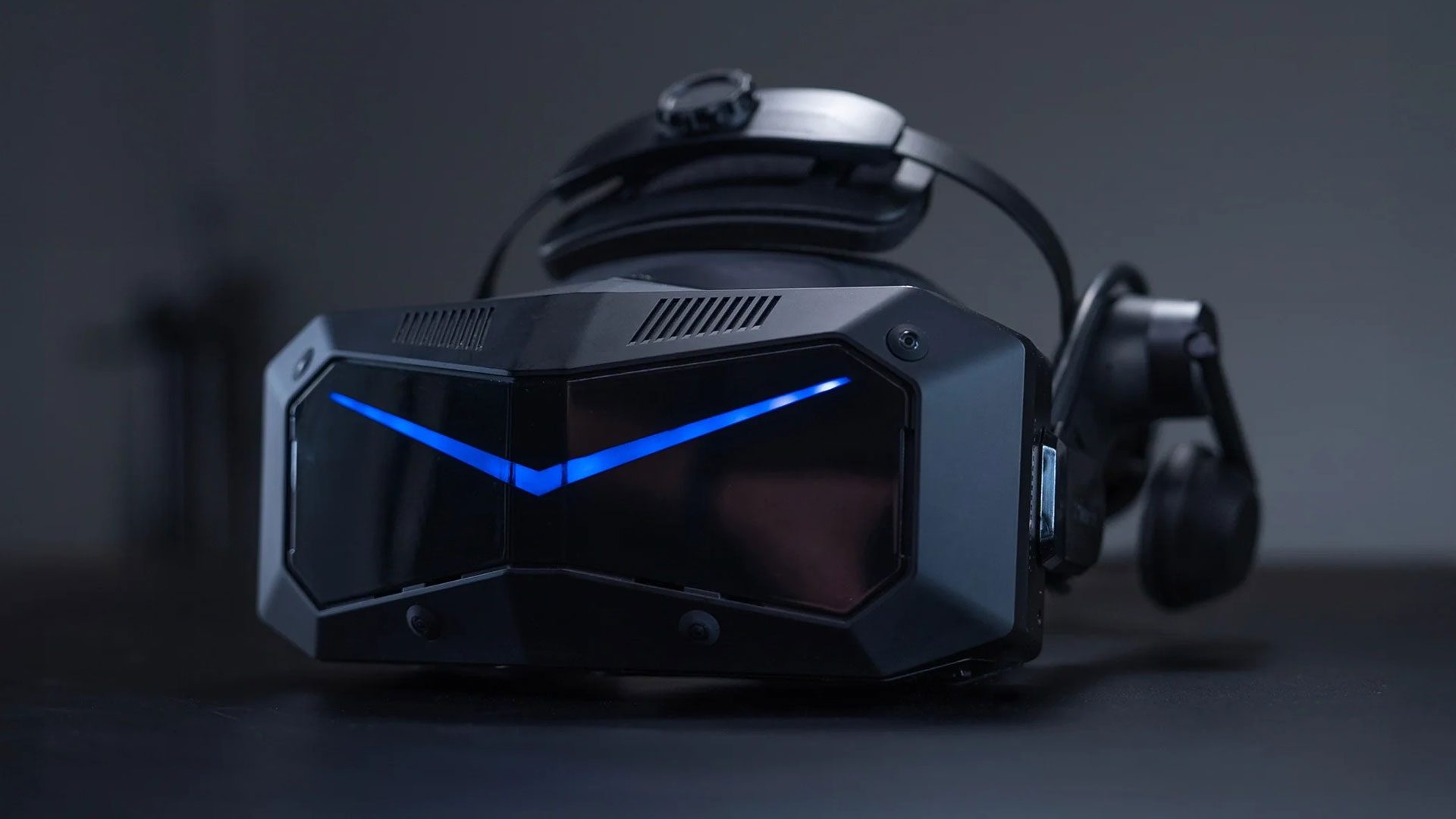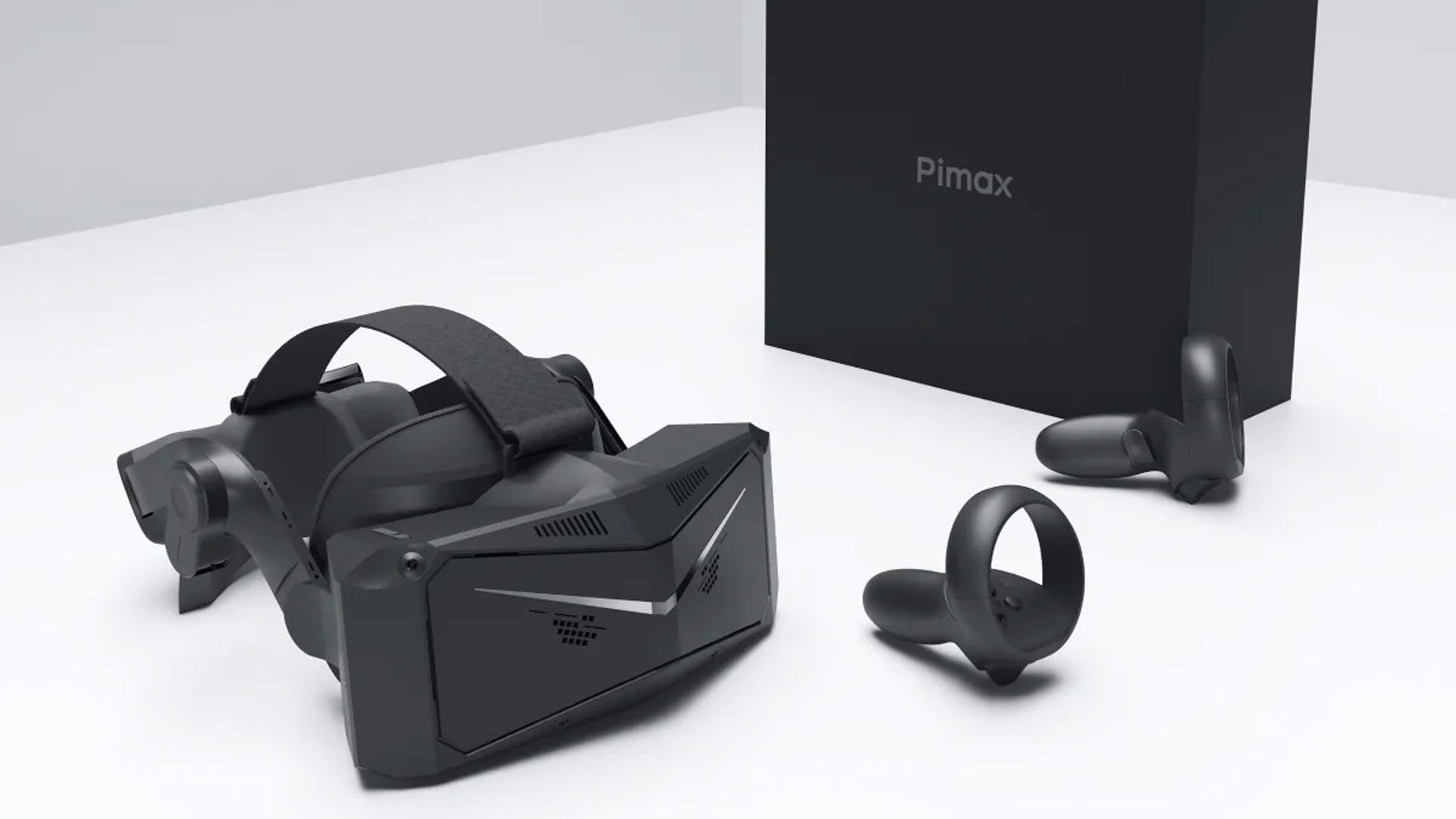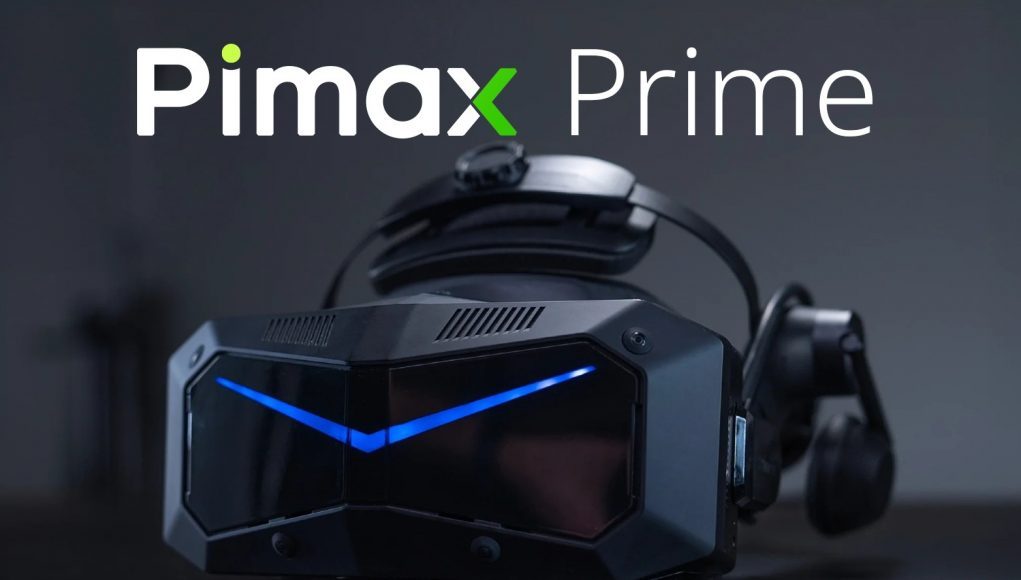Alongside updates to its PC VR headset lineup, Pimax revealed a new financing plan for Crystal Super and Crystal Light which makes both PC VR headsets more affordable, but also alters the payment structure and returns policy in a way that could raise a few eyebrows moving forward.
Announced back in April, Crystal Super is set to be the company’s next flagship PC VR headset, offering a base 57 PPD version with QLED panels that features a staggering resolution of 3,840 x 3,840 pixels per eye, a 120-degree field-of-view (FOV), and glass aspheric lenses with a reported 99% light transmission.
Additionally, Crystal Super supports eye-tracking, dynamic foveated rendering, inside-out tracking, and features swappable optical engines as well as offering a smaller, redesigned form factor for improved ergonomics. Principally targeted at VR simmers who already run a top of the line GPU, it basically represents a veritable wishlist of specs when the 57 PPD version arrives sometime in Q1 2025.

And even more so when the additional optical engines arrive at some point, which includes a micro-OLED engine for $699, and a 50 PPD QLED engine with 135-degree FOV for $399. Pre-orders for those optional add-ons are set to take place early next year.
Along with the fully updated spec sheet and launch of Crystal Super pre-orders, Pimax announced a new pricing structure for both Crystal Super and its previously released Crystal Light which reduces their overall prices, but makes some controversial changes to how the company’s payment structure and returns policy works.
While you can watch another one of Pimax’s patently byzantine video announcements to hear the marketing gist, we’ve dug a little deeper to find out what it means to the end user.
Pimax Prime (no relation)
On the face of it, the base price for Crystal Super is going down from the initially announced $1,800 to $1,695. Crystal Light, originally launched at $899, is going to $858. Notably, these pricing tiers both include controllers. As with all things Pimax though, it’s not so straight forward.
Now, the company is introducing a new mandatory financing/membership program, called ‘Pimax Prime’, which allows customers to purchase Crystal Super for $999 upfront, and Crystal Light for $599 upfront.

Similar to the previous Trial Payment scheme rolled out in May for Crystal Light, Pimax is offering a trial period so you can see if its right for you. When it ends, you’ll be on the hook to choose between one of two payment plans to keep the headset’s software working, or return the headset to Pimax for a full refund.
For Crystal Super, customers can choose between a one-time payment of $696, or a $33 per-month two-year plan ($792 total) for access to the required Pimax Play software. For Crystal Light, the one-time payment costs $259, or $12 per-month two-year plan ($288 total). If monthly payments are missed during the plan, software access is suspended.
After Prime payments are completed however, access to Pimax Play is entirely free for the particular headset in question. That’s seemingly great news if everything goes to plan, and you’re happy with the product, or if you find out it’s not right for you and you want a refund within the trial period.
While Pimax Prime hopes to sweeten the pot with extras such as early access to new software features, exclusive invitations to members-only events, and priority technical support, the payment plan is bringing along with it a fundamental change to how refunds work moving forward, effectively offering some customers less flexibility than before despite a lower overall price.
Through its previous Trial Payment scheme released in May, Crystal Light gave users a 15-day trial period, where customers could make free returns, provided the device wasn’t damaged by the user, and 30 days if damaged in transit. Now, Pimax only offers a 10-day 14-day return window in both cases, meaning you’re on the hook for a payment plan after the trial period no matter what.
While return policies vary in the United States, as that country lacks any such federally mandated consumer protection laws, the EU and UK provide consumers with the right to return any physical product within 14 days without justification, and provides two years against faulty goods, which doesn’t cover the usual suspects: user error, misuse, accidental damage, normal wear-and-tear, etc.
Herein lies the problem. As keen-eyed Redditor ‘TotalWarspammer’ points out, Prime is basically non-refundable after the trial period. It is however refundable if purchased within the 10-day 14-day period, or at the discretion of Pimax thereafter (see update below). Essentially, if you’re on day 14 of your headset and choose to get the best deal by signing up for the one-time payment, and then you change your mind a few days later, it’s up to Pimax to determine whether it will process the refund in full, which would include the purchased Prime subscription.
Notably, Pimax’s 12-month limited warranty does not include “any software whatsoever, whether developed by PIMAX or a third party, even if intended or labelled as for use with the Product.”
The jury is still out on whether this calculated gamble could actually be a misstep, as it has the potential to overshadow ostensibly good hardware from a company that has been able to offer niche PC VR headsets at increasingly reasonable prices. Then again, it may be just what you need to see whether a Pimax headset is right for you, as you’ll have a few days to figure it out and send it back for free. Still, paying for access to middleware that should be included for free may simply not sit right with some, no matter the justification behind it.
Pimax says Prime membership won’t be limited to Crystal Light and Crystal Super either, as the program will expand to include the future Pimax VR headsets too. So we’ll just have to wait and see how the community reacts, and whether Pimax’s new strategy really is here for good.
Update (December 3rd, 2024): A few days after Pimax initially announced Prime, the company has decided to lengthen its 10-day trial period to 14 days. Pimax has also updated its FAQ regarding Prime and refunds.
We’ve included this in the body of the article above, maintaining however information on the previously announced 10-day trial for the sake of clarity.
Update (November 26th, 2024): An early statement found on the headsets’ FAQ stated Pimax Prime was non-refundable, which is not the case—at least within the 10-day trial period, or at the discretion of the company beyond that date.
“If a customer has upgraded to Prime and decides to return the headset within the 10 day window (or at discretion of Pimax, which we sometimes do), both the base price as well as Prime would be refunded,” says Jaap Grolleman, Director of Overseas Marketing Operations.
We’ve included that information in the text above, and also added a statement regarding the limited 12-month warranty.







